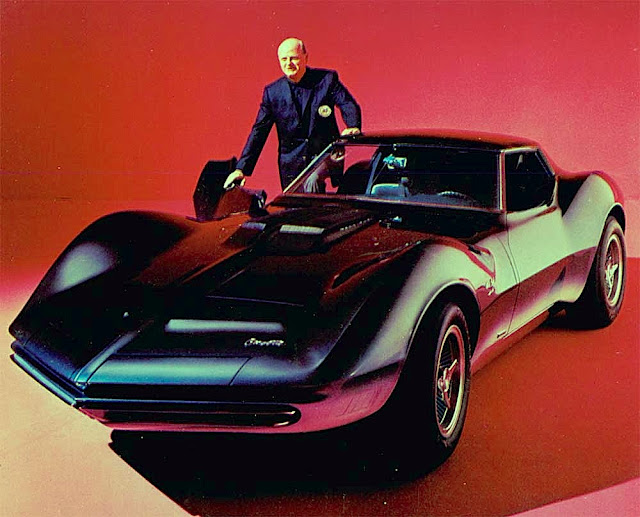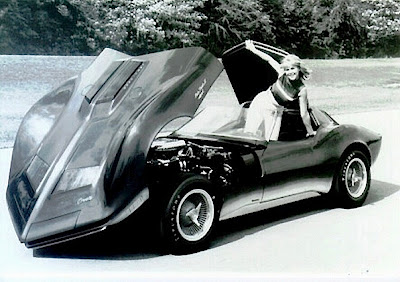Mako Shark I was redesigned as the Mako Shark II in 1965.
Debuted as a show car, its impossibly low nose and lift-off center roof section marked a
dramatic departure from the Sting Ray and pointed the way to the 1968-1982 C3 Corvette.
Reclining the seats enabled the roofline to be three inches lower than the C2’s.
Chevrolet actually created two of them - only one of which was fully functional.
The non-running show car sported some interesting, futuristic details,
such as square section side pipes and a squared-off steering wheel.
While the functioning version didn't have these features, it did have a retractable rear spoiler,
and a square section bumper that could be extended for added protection.
The Mako Shark II was powered by a 427 Mark IV engine, which became available
on production Corvette models. The paint scheme continued the Shark I tradition,
with blue/gray on top and silver/white along the rocker panels.
The original Mako Shark was then retroactively called the "Mako Shark I".
(wikipedia & carstyling.ru)
dramatic departure from the Sting Ray and pointed the way to the 1968-1982 C3 Corvette.
Reclining the seats enabled the roofline to be three inches lower than the C2’s.
Chevrolet actually created two of them - only one of which was fully functional.
The non-running show car sported some interesting, futuristic details,
such as square section side pipes and a squared-off steering wheel.
While the functioning version didn't have these features, it did have a retractable rear spoiler,
and a square section bumper that could be extended for added protection.
The Mako Shark II was powered by a 427 Mark IV engine, which became available
on production Corvette models. The paint scheme continued the Shark I tradition,
with blue/gray on top and silver/white along the rocker panels.
The original Mako Shark was then retroactively called the "Mako Shark I".
(wikipedia & carstyling.ru)
1970 - 72 C3 Corvette Coupe
1974 - 76 C3 Corvette Coupe
(Photos from oldiesfan67.canalblog.com)






















